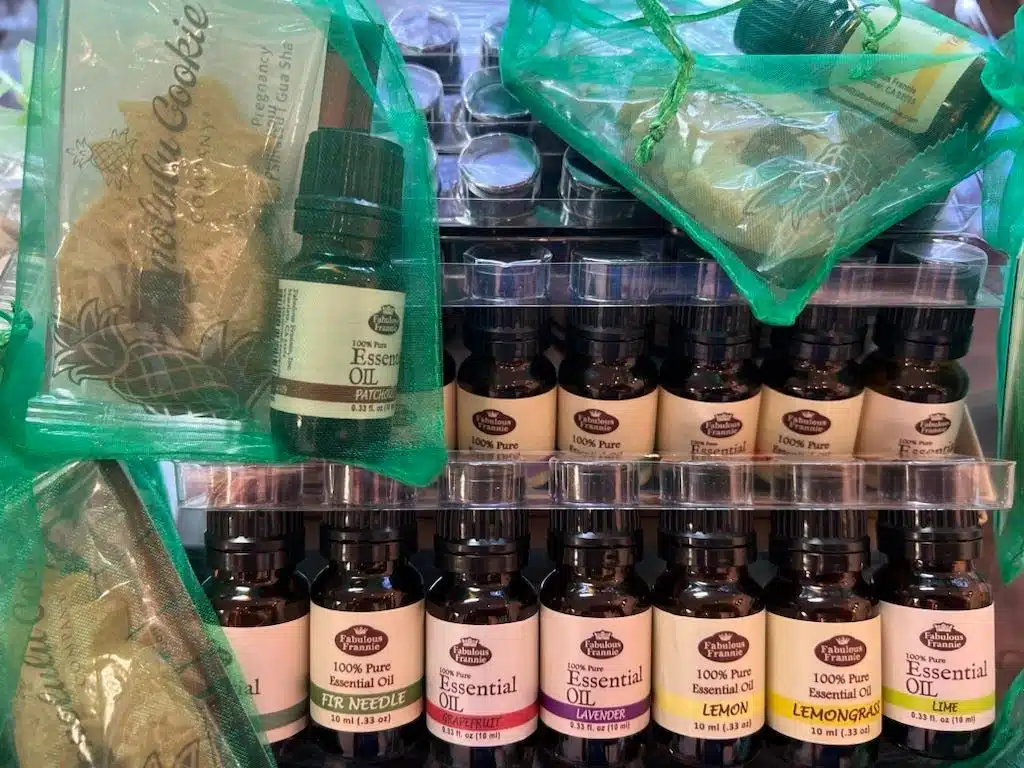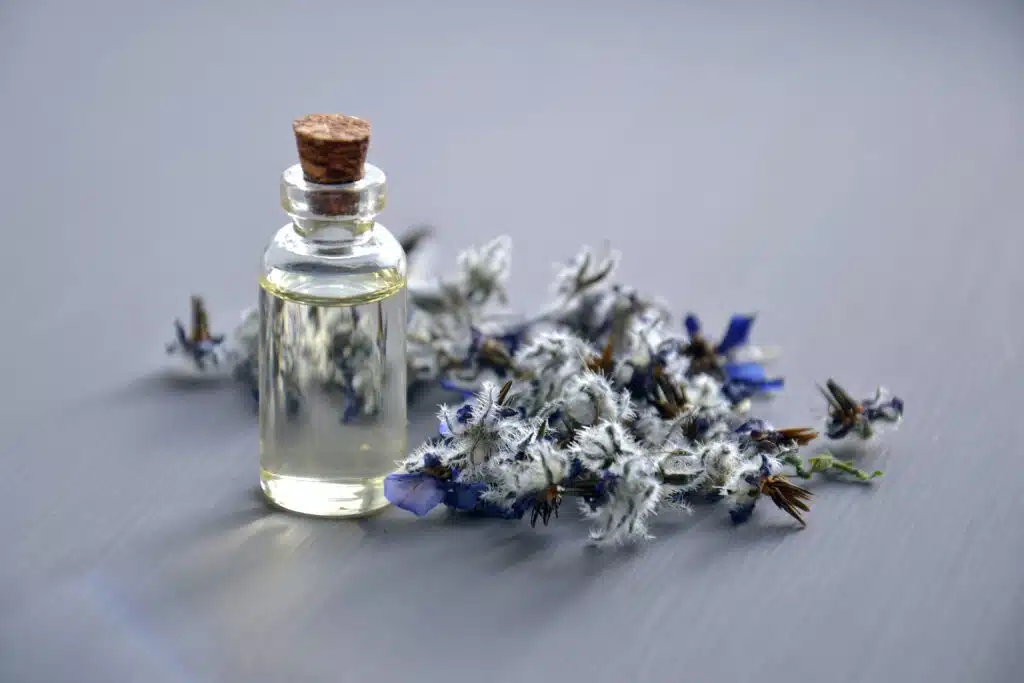Four Thieves Essential Oil is a powerful blend that was created to protect people from the plague. This oil has been used for centuries and is still popular today. There are many different ways to use Four Thieves Essential Oil, and it can be beneficial for both your physical and emotional health. In this blog post, we will discuss the benefits of Four Thieves Essential Oil and how you can use it to improve your health!

Essential oils are highly concentrated extracts from plants that preserve the plant's natural aroma and flavor. There are several widely available essential oils commonly used in several products, such as peppermint, citronella, lavender, tea tree, chamomile, and jasmine. Usually, these oils can be extracted from the plants' roots, stems, leaves, flowers, or fruits. Steam distillation, mechanical techniques such as cold pressing and expression, and supercritical CO2 extraction are all used to obtain them. The chemical makeup of an essential oil will always be different and creates the unique smell, absorption, and effects. This variation can happen within the same plant species or from one plant to another. Also, it's important to note that synthetic oils are not real essential oils. The extracted aromatic chemicals are mixed with a carrier oil to create a finished product that is ready for use.

Aromatherapy, which is frequently misused with essential oil therapy and one of the many popular types of alternative medicine that promotes, is the usage of essential oils for health benefits.
There are several ways that essential oils can interact with your body. When applied to the skin, some of the chemicals in the oil will be absorbed into the body. It is thought that certain application methods, such as applying it to specific areas of the body or using a particular type of massage, can improve absorption. Inhaling essential oils stimulates the limbic system- which is responsible for emotions, behaviors, sense of smell and long term memory. The limbic system is interesting because it has a direct impact on controlling several unconscious physiological functions such as breathing, heart rate and blood pressure.
With that, many people claim that essential oils can exert a positive physical effect on your body.
And one of the most popular essential oils is Four Thieves oil.
The Four Thieves blend of essential oils is a powerful combination of potent ingredients that have been scientifically shown to fight against fungus, bacteria and viruses. Moreover, this essential oil is known to be a natural remedy for many different health conditions, including respiratory infections, sore throats, and headaches. It can also help relieve stress and boost one's mood.
Five Individual Essential Oils that make up the Four Thieves Oil
This oil blend is composed of clove, lemon, cinnamon, eucalyptus, and rosemary essential oils.

Clove oil is derived from the unripe buds of Eugenia caryophyllata, which is a type of clove tree. However, what many people don't know is that in 2017, it was discovered that when mixed with cinnamon, clove oil becomes a powerful antimicrobial agent capable of fighting persistent cultures of Borrelia burgdorferi, the causative agent for Lyme disease.
Studies have shown that essential oils can be effective at preventing the growth of fungi and bacteria. In a 2017 study, clove oil was found to be the most effective oil at stopping the growth of a range of environmental fungi. A 2018 study looked at the effect of essential oils on respiratory infections caused by bacteria, such as pneumonia and influenza.
Cinnamon oil comes from the bark, leaves, or twigs of Cinnamomum zeylanicum tree. In a 2018 research study, it was found that vapors of cinnamon oil inhibited the growth of respiratory pathogens like Haemophilus influenzae and Streptococcus pneumoniae in a petri dish. Topical application of cinnamaldehyde, a component of cinnamon oil and reducer of bacteria in wounds infected with Pseudomonas aeruginosa was also found to promote wound healing in mice in a study in 2019.
Eucalyptus oil originates from the leaves of Australian Eucalyptus plants. A study conducted in 2012 found that eucalyptus oil had antimicrobial activity against two types of bacteria linked to human disease, Escherichia coli and Staphylococcus aureus. In 2018, another study done on rats revealed that a specialized preparation containing eucalyptus oil assisted in wound healing. And more recently, in 2019 research conducted on mice looked at the potential pain-relieving effects of eucalyptus oil with promising findings; it seems that injecting or inhaling eucalyptus oil might be an effective way to relieve certain types of pain.
Lemon oil is a type of essential oil that is extracted from the fruit rinds of Citrus limon. A study conducted in 2019 found that lemon oil has some antimicrobial properties. Many people use lemon essential oil to help with fatigue, depression, skin issues, and inflammation, as well. A 2014 study of 100 pregnant women found that lemon essential oil significantly decreased the levels of nausea and vomiting. A small 2016 study then found that lemon essential oil could also reduce anxiety among people after undergoing orthopedic surgery.
Rosemary essential oil comes from the herb rosemary, Rosmarinus officinalis. The effects of inhaling rosemary oil were investigated in 2013 through studying changes in heart rate, blood pressure, skin temperature, and other physical measures. Results showed that not only does rosemary oil have a stimulating effect, but participants who inhaled it also felt fresher or more active. Respiratory rate, heart rate, and blood pressure increased as well.
Learn how to make your own powerful thieves oil blend
Here's a Thieves Oil recipe from Mountain Rose Herbs:
Blend all ingredients together in a dark glass bottle. By using dark-colored glass, we are able to prevent deterioration and safeguard the aromatic as well as therapeutic properties in your essential oils. This kind of glass is generally available in amber or cobalt blue bottles. Dark glass, like amber or cobalt, filters out harmful sunlight that can damage the quality of most essential oils over time. Although dark colors like blue and green do reduce some light from coming in, they don't offer much protection against UV rays, which are more harmful. Amber-colored glass is uniquely effective in blocking out most UV rays, which is why it's often used to protect products that are susceptible to damage from UV exposure. If you're dead set on using glass - whether it be clear or another color - consider wrapping the bottle in a label so that less of the glass is exposed. By placing a strategically-colored label on your essential oil bottle, you can prevent much of the visible and UV light from interacting with the oils.
In addition, pure essential oils are very potent and can quickly damage plastic bottles if used over time. Although, some types of plastic are less likely to be permeated by essential oils and may work in specific circumstances. Glass is also a great option because it won't break down or wear away like some plastics will. Raw, highly concentrated essential oils interact with plastic in a way that causes rapid erosion. Many essential oils will therefore easily break down any plastic containers they come into contact with. Additionally, when the essential oils interact with permeable plastic, compounds from the leach into the pure oil significantly impact its purity and effectiveness.
Remember that the solution is very concentrated so always dilute it before using. If you want, you can experiment and make your own thieves oil recipe by adding or substituting other essential oils. For example, instead of lemon, try different citrus oils like orange or bergamot. Or for an additional herbal flavor, add thyme to the traditional recipe.
Doing this may take some trial and error to reach the right balance of aromas. Keep in mind that adding too much of a strong aroma could overpower more subtle ones.

Benefits / Uses
Some common ways to use thieves oil are:
In addition to disinfecting surfaces and reducing inflammation, thieves oil has a plethora of benefits that include: relieving sore throat discomfort, managing stress and anxiety levels, healing cuts and scrapes, assisting with skincare concerns like dryness or acne, boosting immunity, and treating minor infections.

One of the most popular ways to use Four Thieves Essential Oil is by diffusing it throughout a room. Diffusion is when you use a device, like a diffuser, that allows the scent of essential oils to disperse evenly. This can be beneficial for promoting alertness, reducing stress or anxiety levels, and elevating your mood. Make sure to carefully follow the product instructions that came with your diffuser - this is important because directions may vary depending on the product.
To use thieves oil for steam inhalation, add several drops of it to steaming water. You may want to start with just a couple drops so the scent isn’t overwhelming. Next, place a towel over your head and lean over the bowl of water. Keep your eyes closed while breathing in deeply through your nose.
In order to make a massage oil using essential oils, you must first dilute the thieves oil by adding another type of oil known as a carrier oil. Carrier oils can include jojoba or coconut oil. It is generally not recommended to apply undiluted essential oils directly to skin, which is why we use carrier solutions. The University of Minnesota Center for Spirituality and Healing advises that no more than 3-5% of your final product be composed of essential Oil to avoid irritation .
If you want to massage large areas , 1% would be sufficient in this case .
You can add thieves oil to either unscented lotions or creams in order to create your own natural preparations. These creations can serve multiple purposes, such as cleansing, soothing, and aiding with wound healing. Remember that you should always dilute thieves oil in a cream or lotion before applying it directly onto skin. According to the National Association for Holistic Aromatherapy, the final essential oil concentration should be no more than 1-2.5% for normal skin types and only 0.-1% for those with sensitive skin.
You can also use thieves oil in a spray mist. This may be helpful for enhancing the scent of a room, or you may want to tap into the antimicrobial properties of thieves oil and use it as a mild cleanser.
To make a thieves oil spray: add 10-15 drops of thieves oil per ounce of water used. You might also want to include a dispersing agent, like solubol, which will help the oil diffuse better in solution . Finally, shake well and Spray throughout the area desired . Make sure to give it good shakes each time before using!
Safe Use
Ensure you are always safe while using essential oils by following the recommended guidelines.
The components of thieves oil have some safety risks that you should be aware of.
If you experience any redness, swelling, or itching after using thieves oil topically, discontinue use immediately as both cinnamon and clove oils are potential skin irritants.
Before applying thieves oil to your skin, it is important to do a patch test. This will help you determine if you are allergic or have any sort of reaction to the oil itself. Here's how:
Cleanse your forearm with unscented soap and make sure it is completely dry before continuing. Next, add a small amount of thieves oil (which should be diluted) to one spot on your forearm. Cover this area with either bandage or gauze material and leave it for 24 hours at the very least before checking again. After that time period has lapsed, go ahead remove the covering so that you can inspect for any sort of irritation
Keep in mind that with repeated exposure, you may become sensitive to both of these oils over time. This is called sensitization.
Applying lemon oil to your skin can cause photosensitivity, which means that ultraviolet radiation from the sun can lead to burning or pigmentation changes. If you’re using thieves oil, avoid going out in direct sunlight without proper sun protection.

If you are looking for a natural and effective way to support your health and wellness, then four thieves essential oil might be the perfect solution for you. This powerful oil is known for its many beneficial properties, including its ability to boost immunity, fight off infections, promote respiratory health, reduce inflammation, and so much more. Whether you choose to use four thieves oil on its own or in combination with other essential oils such as lavender, there are plenty of ways to enjoy all of the amazing benefits that it has to offer. So why wait? Start exploring the wonders of four thieves' essential oil today!